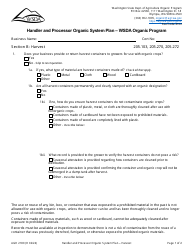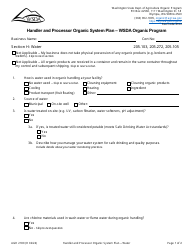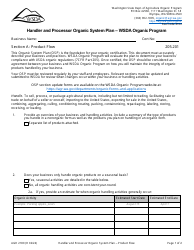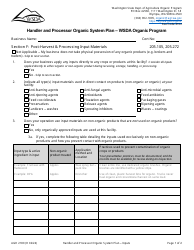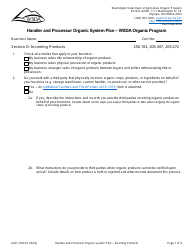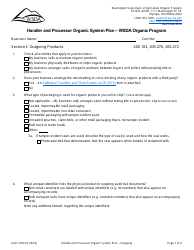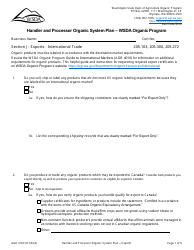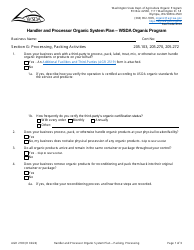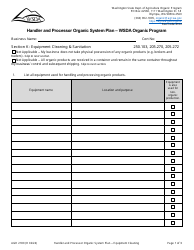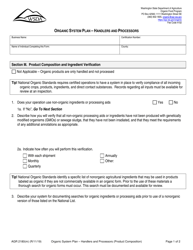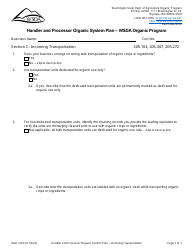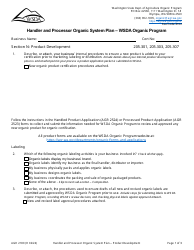Form AGR2180 Section L Organic System Plan - Handlers and Processors (Storage) - Washington
What Is Form AGR2180 Section L?
This is a legal form that was released by the Washington State Department of Agriculture - a government authority operating within Washington.The document is a supplement to Form AGR2180, Organic System Plan - Handlers and Processors. As of today, no separate filing guidelines for the form are provided by the issuing department.
FAQ
Q: What is AGR2180?
A: AGR2180 is a section of the Organic System Plan (OSP) that pertains to Handlers and Processors in Washington.
Q: What does Section L of AGR2180 cover?
A: Section L of AGR2180 covers the storage aspect of Handlers and Processors in Washington.
Q: What is the purpose of the Organic System Plan?
A: The purpose of the Organic System Plan (OSP) is to define and document the organic practices and procedures followed by Handlers and Processors to ensure compliance with organic standards.
Q: Who does Section L of AGR2180 apply to?
A: Section L of AGR2180 applies to Handlers and Processors in Washington who are involved in the storage of organic products.
Q: What are the requirements for storage under Section L of AGR2180?
A: The requirements for storage under Section L of AGR2180 include maintaining the integrity of organic products, preventing contamination from non-organic sources, and keeping proper records.
Q: What should Handlers and Processors in Washington do to comply with Section L of AGR2180?
A: Handlers and Processors in Washington should follow the specific storage requirements outlined in Section L of AGR2180, maintain proper documentation, and ensure that organic products are stored separately from non-organic products.
Q: Why is compliance with Section L of AGR2180 important?
A: Compliance with Section L of AGR2180 is important to ensure that the integrity of organic products is maintained and that consumers can trust that the products they are purchasing meet organic standards.
Form Details:
- Released on November 1, 2019;
- The latest edition provided by the Washington State Department of Agriculture;
- Easy to use and ready to print;
- Quick to customize;
- Compatible with most PDF-viewing applications;
- Fill out the form in our online filing application.
Download a printable version of Form AGR2180 Section L by clicking the link below or browse more documents and templates provided by the Washington State Department of Agriculture.


